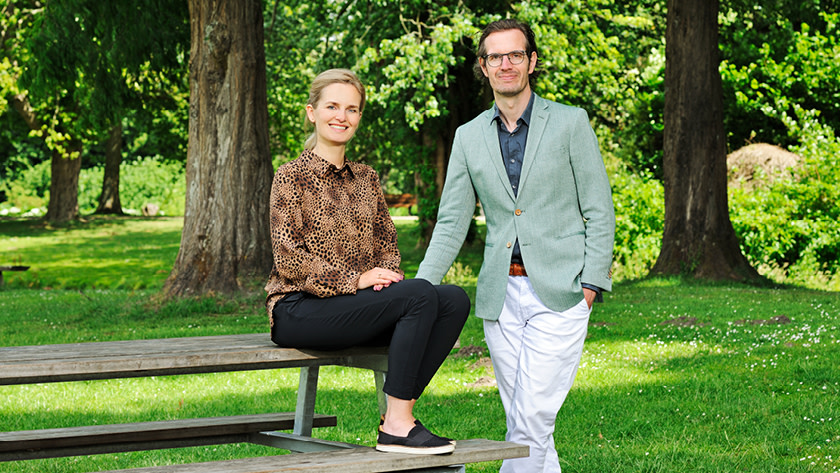ABN AMRO guides philanthropists in combating biodiversity loss

- Sustainable banking newsletter
Nature is struggling in many parts of the world. ABN AMRO aims to help reverse biodiversity loss, also by showing clients how they can contribute to its conservation. For example, donating money and time to charities can truly make a difference.
Biodiversity is under pressure, that much is clear. “It’s essential that we protect our ecosystems,” says Sonny Duijn, Biodiversity Adviser at ABN AMRO, “not only for ethical reasons, but also because it’s about the world we live in. Healthy ecological networks are crucial for soil fertility, carbon storage, water purification and retention, and countless other services. The financial sector has a clear responsibility here as well.”
The bank aims to inspire its clients to make choices that help protect biodiversity. A number of for both business and individual clients support that mission. “One example is ABN AMRO assisting individual clients who are looking to donate to ecosystem conservation but aren’t quite sure where to start,” Sonny explains.
Fewer insects in the garden
Everyone – including governments, businesses and individuals – has a role to play in halting biodiversity loss. “Philanthropy can have a meaningful role in this,” says Kayleigh Boerjan, Philanthropy Advice Specialist at ABN AMRO. “We’re seeing a growing interest from clients who want to support charities working to safeguard biodiversity. People are increasingly concerned about the state of the planet.”
Kayleigh explains that for many, biodiversity still feels like a fairly abstract concept. “Still, it’s obvious there are fewer and fewer insects flying around our gardens each year. At Philanthropy Advice, we’re happy to help connect wealthy individuals with concerns about the future of our planet with the very organisations that are working to protect it.”
So many options
But with many hundreds of charities active in this area, how do you choose? Kayleigh and her colleagues say clients often feel overwhelmed by the sheer number of options for supporting biodiversity. Philanthropy Advice aims to serve as a guide, putting all these alternatives in perspective for them.
Donors can contribute in many ways to help turn the tide by exploring the various strategies to tackle a specific challenge. Kayleigh says, “Clients may opt to support regenerative agriculture, a way of farming that restores ecosystems by boosting biodiversity and improving soil health. They can also donate to wild nature protection efforts in Europe. Or to organisations that fight for cleaner water in the Netherlands by lobbying against the use of harmful pesticides.”
Sharing time and expertise
is keen to connect clients with charities working to protect biodiversity, giving donors insight into each organisation’s goals and methods. “These charities very much depend on the support of Dutch donors to make a real impact,” says Kayleigh. “It’s good that they are connecting more and more.” Clients can contribute financially, but also by sharing their expertise and time by working as volunteers or board members.
The resilience of nature
The bank regularly organises events aimed at sharing knowledge with its clients. At a recent gathering focusing on ‘Philanthropy & Biodiversity’, a group of philanthropists demonstrated how they’re contributing to conservation. The talks offered fresh insights, including how of the rights of nature can have an impact. Jessica den Outer, founder of (Rights of Nature), advocates for these rights with support from donors.
“One inspiring example is the Mar Menor lagoon in Spain,” says Kayleigh. “After years of ecological decline, the lagoon was actually granted legal personhood. That status now helps protect aquatic life from pollution caused by the dumping of mining waste and agricultural fertilisers.”
The lagoon is one of many examples proving that a focus on biodiversity can lead to meaningful change. “Nature shows us time and again how resilient it is,” says Kayleigh. Fittingly, the event centred on the theme of ‘Reasons for Hope’ – a nod to the work of biologist and conservationist , Kayleigh explains: “At 91, she’s still dedicated to nature conservation. Goodall also reminds us how important hope and the innovative power of the human spirit are in tackling the challenges our planet faces.”
A larger whole
Sonny emphasises that every effort to strengthen biodiversity contributes to a larger whole. “Across the bank, we’re working on this issue from different angles. It’s a crucial topic – particularly in relation to other areas – for our society, clients, economy and our bank.”